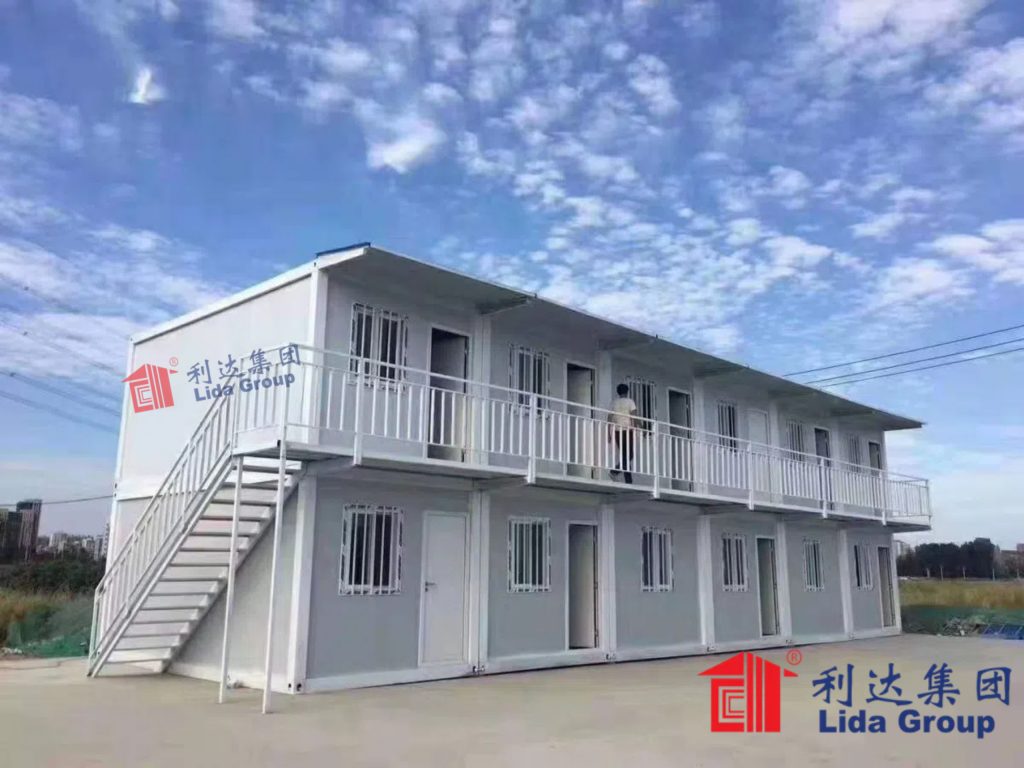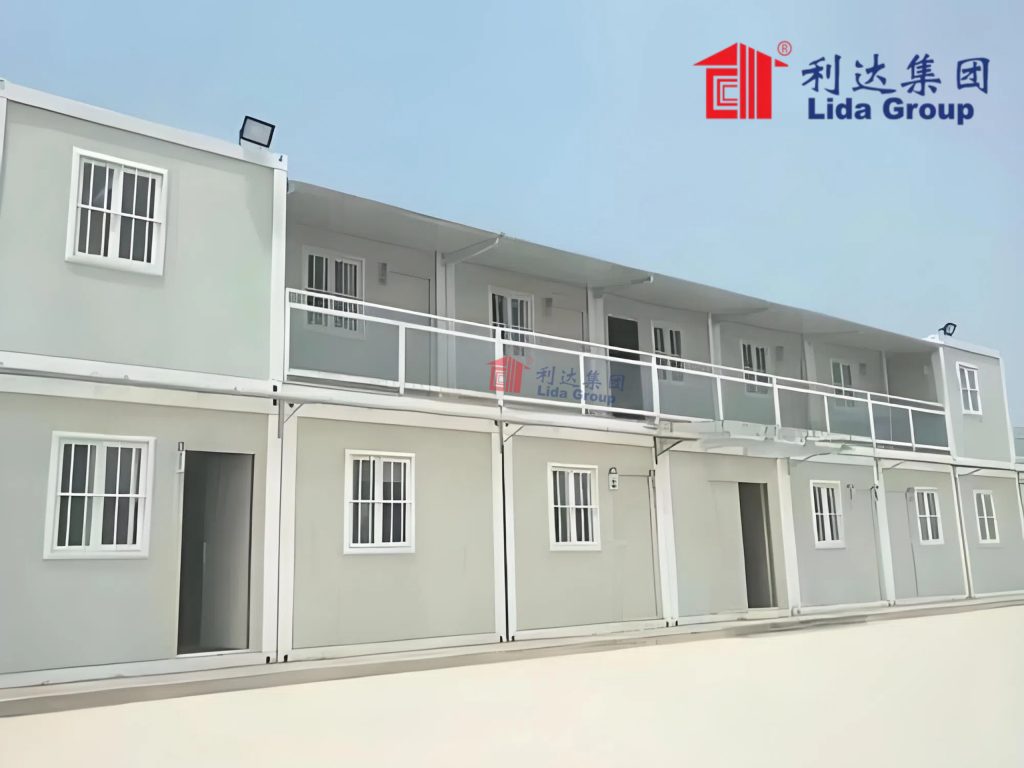As rural development initiatives aim to empower underserved communities globally, some innovators are piloting new approaches leveraging modular construction. A Philippine social enterprise is implementing projects utilizing Lida Group‘s engineered container housing system to thoughtfully integrate multi-family formats and on-site cottage industries promoting sustainable livelihoods. Researchers are evaluating how the model cultivates local entrepreneurship while meeting basic needs through quality homes.
The initial pilot targets an isolated island farming village where many families reside in makeshift structures vulnerable to storms. Working with community leaders, planners designed a clustered subdivision layout accommodating multi-generational family compounds comprising several joinable semi-private units surrounding a shared courtyard and gardens.
Lida Group delivered flat-packed modular rooms pre-configured to assemble efficiently on-site. Foundation pads precisely positioned container modules as interconnected family dwellings. Shared cooking spaces open to courtyards with communal utilities. Second floor balconies over courtyard gardens enhance ventilation. Interiors feature versatile flex spaces adaptable as workshops, storage or future expansion.

Simultaneously, the enterprise oversaw construction of communal industrial buildings subdividing open workshop bays according trainees’ small business plans. Weaving, woodcarving and screen printing ventures occupied buildings positioning artisans near housing for convenient family life integration. Solar micro-grids delivered renewable power along with rainwater capture sustaining operations and modest housing needs.
Community organizers provided business management training and market linkage assistance. Initial workshops piloted diversified traditional craft production trialing organic certification and niche exports. Funded by impact investors, the enterprises aim for long term local ownership and self-sufficiency subsidizing modest rents to stabilize artisan communities according to managers.
Researchers visited the construction site documenting modular assembly workflows and occupant feedback. Interviews found families expressing pride in the comfortable clustered housing promoting inter-generational relationships and traditional livelihood preservation. Workshop occupants reported work-life balance improvements and optimism for small business success with organizational support.

Additional implementations are planned across remote Filipino island settlements according to community needs assessments. In peripheral urban areas, the model aims substituting slums by redeveloping former dumpsites into mixed industrial and housing neighborhoods empowering waste pickers. Containers construct workshops using salvaged materials while flats meet basic needs with dignity.
Researchers analyze social indicators and financial models quantifying social impacts against development aims. Preliminary findings suggest the integrated housing-industry framework cultivates self-sustaining resilient communities through new livelihood opportunities according representatives. Modular builds proceed rapidly yet affordably according to budgets.
In conclusion, early pilots demonstrate potentials for the engineered container construction approach combined with socio-economic programs supporting healthy development contexts. Thoughtfully planned arrangements promote workforce stability through community-centric living while cultivating traditional artisanries preserving cultural heritage. Independent observation confirms rapid yet dignified modular housing and organized self-employment training support underserved populations’ self-determination according organizers. Ongoing evaluations will provide valuable data on long-term empowerment impacts achieved through the model for guiding expanded implementation supporting dispersed vulnerable communities globally.

Related news
-
Mining company deploys Lida Group's durable yet portable living complexes from repurposed containers to replace aging dormitories as high quality workforce accommodation near new extraction sites.
2024-07-04 11:34:21
-
Journal publishes field research on pilot implementations of Lida Group's standardized pre-engineered steel structural solutions delivering quality apartments with universal fittings for ancillary commercial spaces and community amenities.
2024-07-01 17:08:11
-
Researchers analyze modular construction techniques and energy efficient designs of high quality prefabricated homes assembled easily from refurbished shipping containers by Lida Group.
2024-07-03 16:51:00
contact us
- Tel: +86-532-88966982
- Whatsapp: +86-13793209022
- E-mail: sales@lidajituan.com


